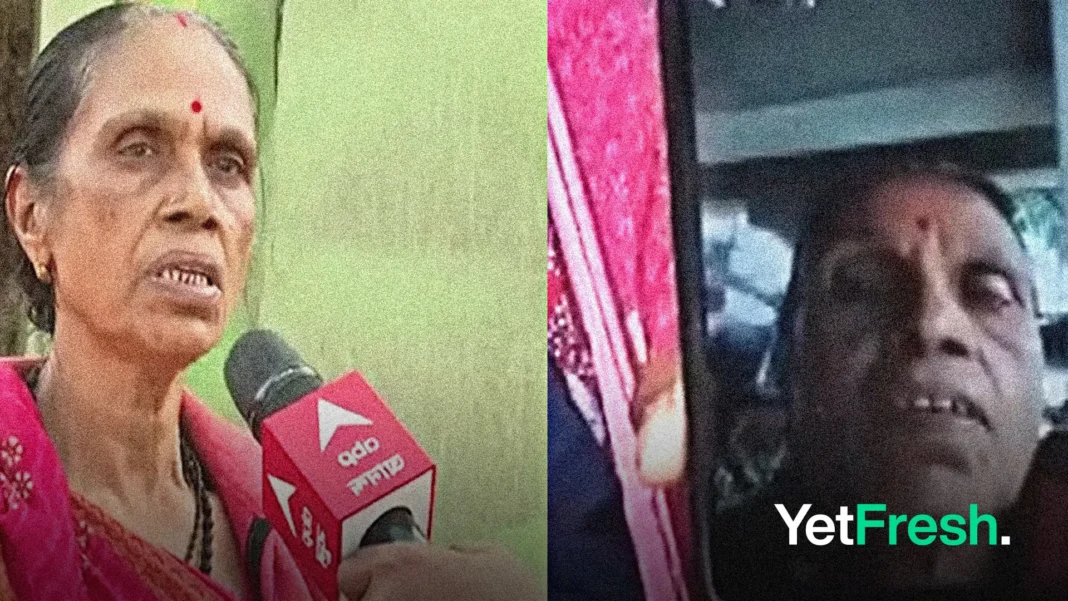Summary:
- A Bangladeshi woman, Usha Rani Roy, alleged she was coerced by Indian media into making false claims about religious persecution in Bangladesh during a medical trip.
- She stated she was detained for four hours and pressured into providing fabricated statements out of fear.
- Local leaders and residents in Narail refuted the claims, emphasizing peaceful coexistence among all communities in the area.
- Authorities confirmed no evidence of communal unrest, with the region remaining calm and harmonious.
In a troubling incident that has sparked widespread discussion, a Bangladeshi woman from Narail has alleged that she was coerced by Indian media into providing false statements about religious persecution in Bangladesh. The woman, Usha Rani Roy, claims she was detained for four hours during a visit to India for medical treatment and pressured into making fabricated remarks about the mistreatment of Hindus in her home country.
Usha Rani, a resident of the Naldhi Union in Narail’s Lohagara Upazila, traveled to India on December 7 for medical reasons. While there, she alleges that she was surrounded and intimidated into falsely stating that Hindus in Bangladesh face systemic oppression and violence. In a video message, Usha Rani recounted the ordeal, saying, “They surrounded me and made me say everything. I was detained for four hours. Out of fear, I said whatever they asked.” Her husband, Subash Roy, corroborated her statement, asserting that the information broadcast by Indian media was entirely false and did not reflect the harmonious coexistence of communities in their area.
The allegations have drawn sharp criticism from local leaders and residents in Narail. Abul Kalam Azad, Chairman of the Naldhi Union Parishad, dismissed the claims of persecution as baseless. “I have been chairman here for 30 years. There is no evidence or proof of anyone being oppressed here,” he stated. Similarly, local law enforcement officials have confirmed that the area remains peaceful and free from communal tensions. Sub-Inspector Morsalin of the Lohagara police outpost noted that authorities had visited Usha Rani’s home to ensure law and order and found no signs of unrest.
Residents of Naldhi Union, where a significant portion of the population practices Hinduism, have also expressed their dismay at the false narrative. A local Hindu woman emphasized their peaceful existence, saying, “We live in harmony here and can worship freely.”
This incident has reignited concerns over media ethics and sensationalism in cross-border reporting. Critics argue that such actions undermine trust and exacerbate tensions between communities. The case also highlights broader issues of misinformation and its potential to disrupt social harmony.
As investigations continue, this episode serves as a reminder of the importance of accurate reporting and ethical journalism in fostering understanding rather than division between nations and communities.
Source: Jamuna TV




